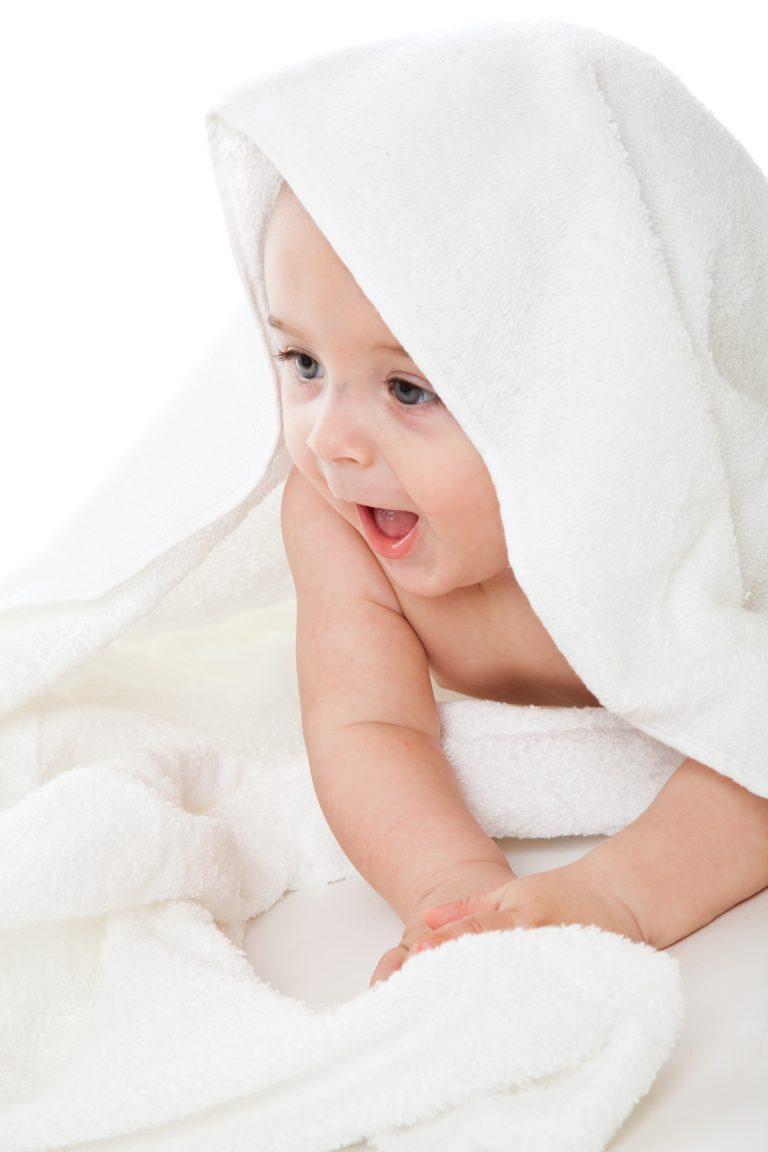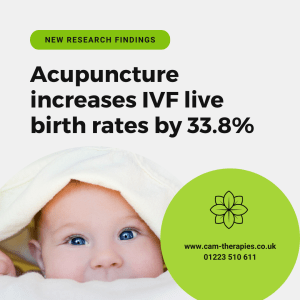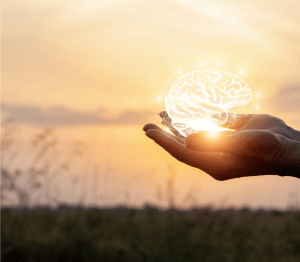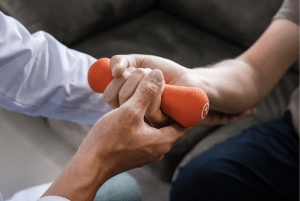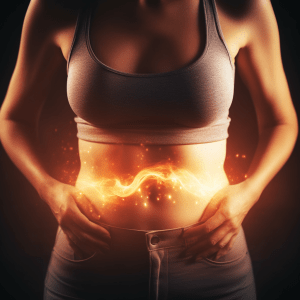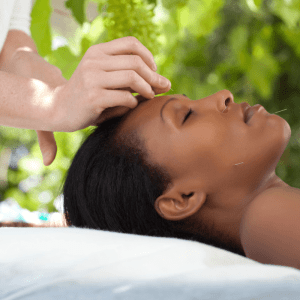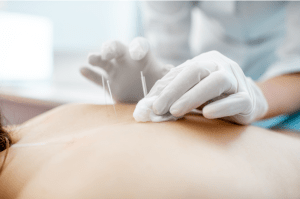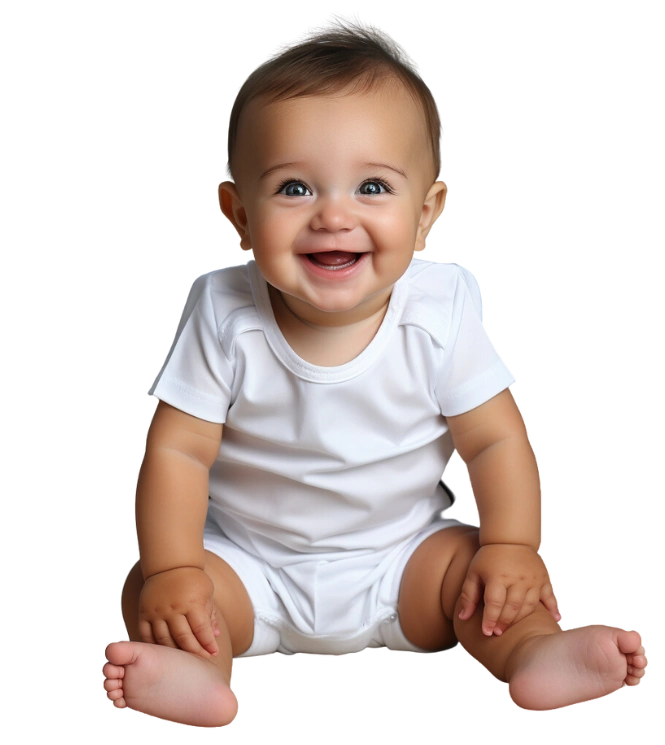Introduction
Did you know that at least 1 in 4 couples have acupuncture to help them get pregnant naturally or when trying to conceive with the help of medical infertility treatment?
So, how does acupuncture improve fertility? This article summarises research findings on how acupuncture can help improve fertility and increase In Vitro Fertilization (IVF) success rates.
What is Acupuncture?
Acupuncture is a complementary and alternative medicine treatment where thin, sterile acupuncture needles are inserted into specific acupuncture points to treat or reduce the severity of many health conditions or improve general well-being.
How does acupuncture for fertility work?
Acupuncture originated in China around 4000 BC when Traditional Chinese Medicine doctors believed that acupuncture works by regulating the flow of ‘Qi’ (often translated as a ‘vital force’ or ‘energy’).
But it’s only recently, with advancements in science, that we started to understand how this ancient healing tradition works from a science perspective.
When acupuncture needles stimulate specific acupuncture points, this causes the release of chemicals called neurotransmitters. These neurotransmitters then travel via the central nervous system to the brain, where they either activate or inhibit other nerve signals. It’s these neurotransmitters that regulate the release of hormones and control different aspects of health.
In the following sections, we will explore in more detail how acupuncture can help you get pregnant.
Acupuncture regulates female reproductive hormones
Female reproductive hormones need to be carefully balanced for optimal fertility. One such hormone is Follicle Stimulating Hormone (FSH). As its name suggests, FSH is necessary for ovarian follicles to grow and mature.
If FSH is high, the brain has to work extra hard to grow ovarian follicles and eggs. In natural conception cycles, high FSH could mean that a woman is transitioning into a perimenopausal stage. A very high FSH could mean that the ovaries have stopped working. In assisted fertility treatments, women who have raised FSH levels do not respond well to ovarian stimulation medication and produce fewer eggs. In extreme cases, they may not produce any eggs.
A recent major review of research concluded that acupuncture positively alters how reproductive hormones are secreted. This is likely to help women respond better to ovarian stimulation medication or natural stimulation by the brain.
Acupuncture improves blood flow and egg quality
Ovarian follicles and their eggs grow in response to hormones and nutrients delivered via the ovarian blood supply. Efficient blood flow is associated with higher quality eggs. If blood flow is compromised, the follicles and the eggs within them will be starved of nutrients and oxygen, and this could lead to fewer good quality eggs during assisted fertility treatments.
Several research studies have found that one of the benefits of acupuncture is that it increases blood flow to the uterus and ovaries by relaxing the walls of blood vessels.
In one recent randomised controlled trial, patients who received acupuncture treatment had significantly more mature eggs than patients who received sham (placebo) acupuncture (Kusuma et al., 2019).
Acupuncture improves sperm quality and quantity
Up to 40% of infertility cases are at least in part caused by poor male fertility. Some people working in fertility medicine believe that, so long as men have some sperm, IVF will overcome male factor infertility, particularly if a specialist fertilisation technique called Intra-Cytoplasmic Sperm Injection (ICSI) is used. In the ICSI technique, a single sperm is injected into an egg. However, ICSI pregnancy rates are virtually the same as with conventional IVF treatment (33 vs. 32.4%).
One of the possible explanations why IVF/ICSI does not overcome all male fertility issues is because it cannot alter the quality of sperm; it only attempts to select the ‘best looking’ sperm and then inject it into the egg.
As the embryo is made of 50% mother’s and 50% father’s DNA, if the quality of the sperm is poor, it is likely that the resulting embryo quality will also be poor, and the embryo will not implant.
Preliminary research investigating the effects of acupuncture on male fertility has found that acupuncture can positively influence sperm parameters, including sperm concentration, motility, vitality and count. There is also some evidence that acupuncture treatment of male partners increases IVF fertilisation rates, thus potentially providing couples with more embryos.
Acupuncture may also possibly regulate testosterone levels based on the findings of some researchers. It is extremely important that a male partner has the optimal level of testosterone in their body in order to have adequate sperm production.
Acupuncture helps with embryo implantation
A growing body of evidence suggests that acupuncture increases embryo implantation rates. For example, in one recent study, it was found that acupuncture significantly improved clinical pregnancy rates in patients with a history of two or more failed IVF cycles.
Embryo implantation is dependent on many factors, including good blood supply to the uterus. Research shows that good blood supply to the uterus just before egg retrieval is associated with improved IVF conception rates. As previously mentioned, acupuncture can successfully increase the blood flow to the reproductive organs.
Implantation is also dependent on a normally functioning immune system. In some cases, problems with the immune system stop the embryo from implanting. A considerable body of human and animal research shows that acupuncture helps to regulate immune function.
Acupuncture reduces anxiety and stress
Research shows that a diagnosis of infertility causes the same level of emotional suffering as a cancer diagnosis. Unfortunately, high stress levels in patients with fertility problems can further reduce the chances of conception. Stress can:
- affect reproductive hormones
- reduce sperm quality and quantity
- cause the menstrual cycles to become shorter, and this may shorten the luteal phase, therefore, not allowing enough time for the embryo to implant
- increase the risk of miscarriages
Several studies have shown that acupuncture reduces anxiety and stress symptoms in infertility patients. In particular, acupuncture reduces cortisol levels, one of the body’s major stress hormones.
A recent meta-analysis concluded that acupuncture significantly reduces anxiety in patients undergoing fertility treatments (Ye et al., 2021).
The world’s largest professional medical reproductive organisation, The American Society for Reproductive Medicine (ASRM), recommends that infertility patients should try acupuncture to manage stress and other infertility related issues.
Related: 9 Benefits of Acupuncture
Practical considerations
Acupuncture for fertility treatment timing
Acupuncture is a safe and effective non-pharmacological way to improve fertility and IVF success rates. However, it is not a quick-fix solution.
Research shows that acupuncture treatment is more successful in increasing the IVF pregnancy rate if it is administered at all stages of IVF, not just around the time of embryo transfer (Qian et al., 2017).
In many cases, acupuncture treatment may need to be started at least two to three months before commencing medical infertility treatment and even earlier in some complex cases.
This is because ovarian follicles and the eggs within them take over a year to develop, and sperm takes around three months to be produced.
Acupuncture treatment may also need to be continued throughout all stages of IVF and in early pregnancy.
Specialist fertility acupuncturists
A good understanding of Traditional Chinese Medicine and acupuncture will get results for many patients. However, in more complex cases, it might not be enough.
It is vitally important that you see an acupuncturist who has sufficient specialist knowledge of the complexities of fertility and reproductive medicine and is experienced in treating infertility and IVF patients.
Summary: how acupuncture works for fertility
In conclusion, while acupuncture can not cure absolute infertility (also called sterility), but it can improve physiological processes in the body that enhance reproductive function in patients who do not have absolute barriers to conception.
Acupuncture has been found to be beneficial in regulating the menstrual cycles, increasing the blood flow to the uterus and the ovaries, and reducing stress. Acupuncture also helps with implantation rates and provides excellent support for patients undergoing assisted reproductive treatments such as IVF.
References
Kusuma, A. C., Oktari, N., Mihardja, H., Srilestari, A., Simadibrata, C. L., Hestiantoro, A., Wiweko, B., & Muna, N. (2019). Electroacupuncture Enhances Number of Mature Oocytes and Fertility Rates for In Vitro Fertilization. Medical Acupuncture, 31(5), 289–297. https://pubmed.ncbi.nlm.nih.gov/31624528/
Qian, Y., Xia, X.-R., Ochin, H., Huang, C., Gao, C., Gao, L., Cui, Y.-G., Liu, J.-Y., & Meng, Y. (2017). Therapeutic effect of acupuncture on the outcomes of in vitro fertilization: a systematic review and meta-analysis. Archives of Gynecology and Obstetrics, 295(3), 543–558. https://doi.org/10.1007/s00404-016-4255-y
Ye, J.-Y., He, Y.-J., Zhan, M.-J., & Qu, F. (2021). Effects of Acupuncture on the Relief of Anxiety and/or Depression during In Vitro Fertilization: A Systematic Review and Meta-Analysis. European Journal of Integrative Medicine, 42, 101287. https://doi.org/10.1016/j.eujim.2021.101287

